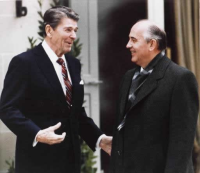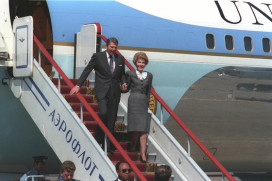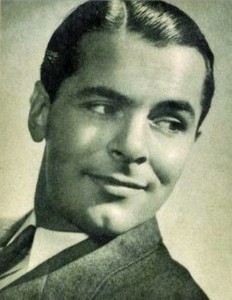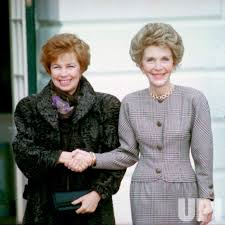 Note: Our accounts contain the personal recollections and opinions of the individual interviewed. The views expressed should not be considered official statements of the U.S. government or the Association for Diplomatic Studies and Training. ADST conducts oral history interviews with retired U.S. diplomats, and uses their accounts to form narratives around specific events or concepts, in order to further the study of American diplomatic history and provide the historical perspective of those directly involved.
Note: Our accounts contain the personal recollections and opinions of the individual interviewed. The views expressed should not be considered official statements of the U.S. government or the Association for Diplomatic Studies and Training. ADST conducts oral history interviews with retired U.S. diplomats, and uses their accounts to form narratives around specific events or concepts, in order to further the study of American diplomatic history and provide the historical perspective of those directly involved.
The Geneva Summit of 1985 was the first meeting between President Reagan and Soviet General Secretary Gorbachev to talk about the arms race, particularly the Strategic Defense Initiative, and to establish personal relations between the leaders of the world's superpowers. Held November 19, 1985 at a chateau owned by the Aga Khan, the first meeting went over schedule by half an hour. It was a promising start, and Gorbachev accepted Reagan's invitation to visit the U.S. within the year. This account was compiled from an interview by ADST in 1998 with Ronald D. Flack, Deputy Permanent Representative in Geneva from 1984-1987. Read the entire account on ADST.org.
This account was compiled from an interview by ADST in 1998 with Ronald D. Flack, Deputy Permanent Representative in Geneva from 1984-1987. Read the entire account on ADST.org.
FLACK: [Secretary of State George] Shultz came to Geneva many, many times for meetings with the Soviets getting things back on track to restart the negotiations.
At that point I realized that this was going to happen and I remember having a meeting with the Ambassador telling him, "You know, as soon as these talks get started, when we talk seriously with the Soviets, we can expect that there will be talk of a Reagan/Gorbachev summit and my guess would be that it will be here in Geneva. We had better start thinking about that because we will be responsible for it." Well, he didn't pay much attention to that. He thought I was kind of dreaming wildly, or something. But, indeed that is exactly what happened. The first White House contingent of 15 people arrived on August 1 and we began our work with the Soviet mission and the Swiss.
I have often said that when you have a presidential visit, and I have had them elsewhere, I hope relations between the U.S. and the other country involved will survive the visit. In this case, it was U.S. and Swiss relations, because they were basically the host country. I also, of course, was working closely with our Ambassador in Bern.
It was John Davis Lodge, who was a very old man, in his eighties (seen at left at a young age.) He was a movie actor in the twenties and thirties and was a political appointee... He also did a film with Shirley Temple when she was a little girl. There was a great deal of friction between my ambassador at the mission and Ambassador Lodge as to who was going to be the more important of the two ambassadors involved with this visit. Obviously we were the ones who were doing the work and Bern wasn't, but Bern felt they were the representatives to Switzerland. In terms of protocol they were absolutely right; the president was coming to Switzerland. For example, who was going to meet the President at the bottom of the steps? Should it be Ambassador Lodge or should it be my ambassador in Geneva? They had a very bitter time over this.
Obviously we were the ones who were doing the work and Bern wasn't, but Bern felt they were the representatives to Switzerland. In terms of protocol they were absolutely right; the president was coming to Switzerland. For example, who was going to meet the President at the bottom of the steps? Should it be Ambassador Lodge or should it be my ambassador in Geneva? They had a very bitter time over this.
The Swiss can be very strict, very difficult and very serious and in fact they are also very efficient, very good at this. I remember someone in Washington, after having dealt for a couple of months on these arrangements, describing Switzerland as "the nicest police state in the world." That is what it is. They are really in control of what is going on in their country. They were good to deal with and even survived the Secret Service.
I remember one particular meeting when we were making arrangements for things at the airport and the director of the airport was present. The Secret Service, as they always do, handed the director of the airport a lapel pin for him to wear so they could know who was who in the crowd, etc.
He took it and said, "I'm not going to wear this. Why should I wear this?"
They very patiently explained to him that it helped them know who was a member of the party and he said, "Look. I am the director of this airport, everybody knows me. I don't have to wear anything like this in my airport. I am not going to wear this."
The Secret Service was getting more and more put out and anxious to have him do this.
He finally shouted at them, "Give me one good reason why I should wear something like this?"
The Secret Service agent looked at him and said, "We don't shoot people that are wearing these."
The director turned red and shut up. It caused a diplomatic incident. He went to his government and complained that he had been threatened by the Secret Service. This kind of thing is always difficult but to be expected....
It was a very tense time. Security, as you can imagine, was incredibly tight. My wife, who is French-born, was Nancy Reagan's interpreter. She visited a drug rehabilitation center, a school, laid the cornerstone of the new International Red Cross museum, and things like that. The Soviets were secretive, but we got what we needed. There certainly was no openness about it. Things basically went well and in the end I can't think of any major problem that involved the Soviets. We gave the reception at the beginning and the Soviet ambassador gave the reception the next night.
The Soviets were secretive, but we got what we needed. There certainly was no openness about it. Things basically went well and in the end I can't think of any major problem that involved the Soviets. We gave the reception at the beginning and the Soviet ambassador gave the reception the next night.
When I went to his reception he was decked out in all his ribbons and I said to him, "Mr. Ambassador, You look great in your uniform with all your medals. You will get another one after this visit."
He said, "I just hope I will be able to keep the ones I have!"
There were far too many people from Washington, from the Department and all the other agencies. We had a thousand people from the White House. We had 35 servants from the White House.
I do think [the summit] had a tremendous impact on Gorbachev, particularly. I think he came to realize the importance of the Reagan administration here and the President and of the weight of the responsibility that he had in this negotiation.
That was the beginning of perestroika and glasnost. That was when they began to realize that they weren't doing things right, that there were better ways of doing things. Someone told me that when Gorbachev was on one of his visits to the States, he and the President were on a helicopter going up to Camp David or something, and they were flying over the northern part of Washington into Maryland and Gorbachev was looking at all these subdivisions which from the air looked beautifully laid out. He looked at Reagan and said, "How do you do that?" Reagan apparently told his aides afterwards that it is mind-boggling to even think about how you would answer a question like that. It goes back to the very basics of economics. The question of "How do you do that?" showed the intellectual limits Gorbachev had and the need he felt to really do things differently and learn.
He looked at Reagan and said, "How do you do that?" Reagan apparently told his aides afterwards that it is mind-boggling to even think about how you would answer a question like that. It goes back to the very basics of economics. The question of "How do you do that?" showed the intellectual limits Gorbachev had and the need he felt to really do things differently and learn.
It was a highly successful meeting. You may recall that some of the meetings following it in Iceland, etc. were less successful. This was the first one and the one where they really got together for the first time and got to know each other.
It was beautifully orchestrated, if I do say so myself. I certainly had a lot to do with it, but a lot of people in the White House were good at this as well. We were able to provide the type of environment that was really conducive, I think, to very, very good talks. When everybody left, we had a lot of work to do to clean up, so to speak, but we felt that we had been a part of an historic occasion and that it made a difference.
